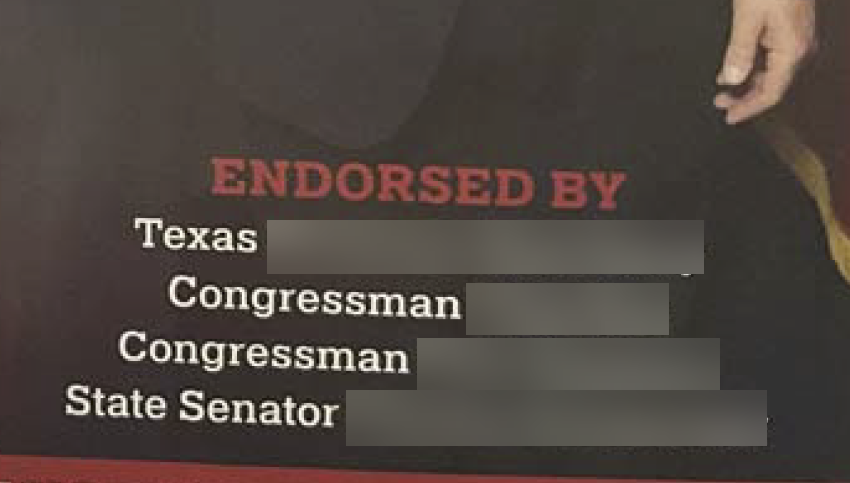The Value (or not) of Endorsements
Candidates love to share their endorsements. Why? They believe you’ll find a name among that list that you admire, and thus will vote for that candidate.
But should you? My husband, who has also been involved in the political world for many, many years, says “Endorsements are only good on the back of a check.” I agree.
What difference does it make if a beloved former (or current) governor or legislator, or well-known local, endorses a current candidate? That “former (or current)” or “well-known” won’t be serving in office. They don’t vote. The candidate, once an officerholder, does.
Will that former or current elected official, or well-known local, have significant influence over the actions and votes of the candidate? Will that endorser’s influence exceed that of the voters? Yes, it will. And, if campaign contributions flow from that endorser, my “yes” is iron-clad.
 Don’t be awed by endorsements. Rather, ask yourself, “If that endorser opposed a measure I support, who’s opinion would the candidate (now officeholder) weigh more heavily?” When it comes to a vote and the chips are down, if donations are involved, the endorser wins, the voters lose. It’s rarely the other way around.
Don’t be awed by endorsements. Rather, ask yourself, “If that endorser opposed a measure I support, who’s opinion would the candidate (now officeholder) weigh more heavily?” When it comes to a vote and the chips are down, if donations are involved, the endorser wins, the voters lose. It’s rarely the other way around.
The TX House vote to impeach Ken Paxton is but one example. All but 5 Republicans who took money from Dade Phelan voted to impeach: 49 of them. Did that accurately reflect the wishes of their constituents? Not likely.
Another example: Let’s say managing excessive growth is your highest priority (as it is for many in Bastrop County). Along comes a candidate’s literature stating that they are endorsed by major residential and commercial developers or a law firm that makes a good deal of its money from representing developers or a real estate PAC or an entity with which they have a business relationship.
Once in office, will that candidate vote with the wishes of his/her constituents or the endorser? What if that endorser helped fund the campaign? You know the answer.
The only caveat in this is if you research the endorser’s background or votes during his/her term of office and find you’re majorly in agreement with the endorser’s stands on current issues. But you must do that research specifically regarding current issues. I repeat: current issues. A good example of this is a Trump endorsement.
It means nothing if you agreed with that endorser’s stand on the war in Iraq, but disagree with his/her current stand on school choice, casino gambling, water, immigration or any other issue facing the county or state.
And remember, current elected officials who endorse often have their own agendas: which candidate can or will help me the most when I run for re-election or which candidate is likely to win, making me look like a winner?
The only endorsement worth anything is that of the voters, your endorsement. You have the power. Don’t be swayed by a list of allegedly important names.
